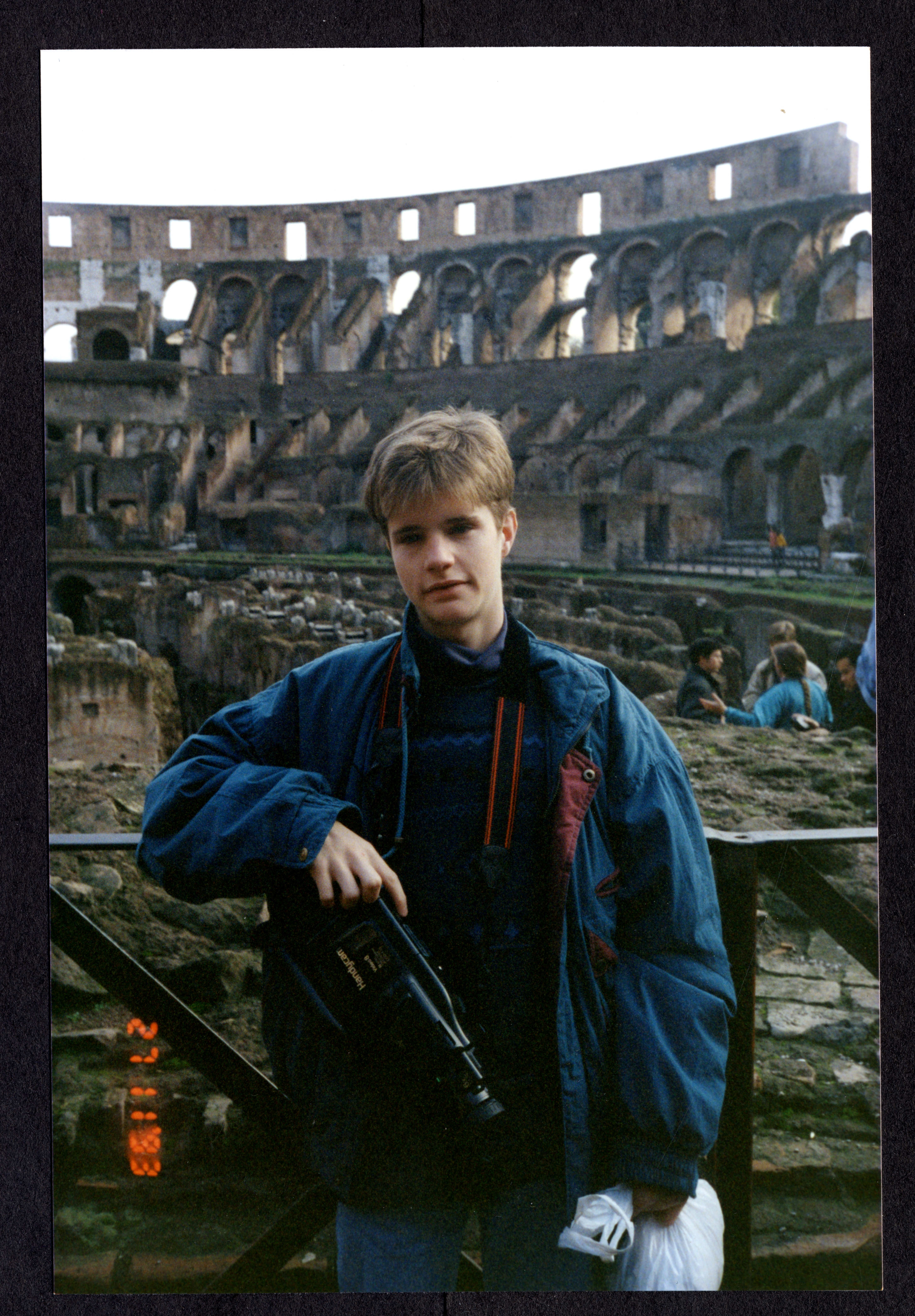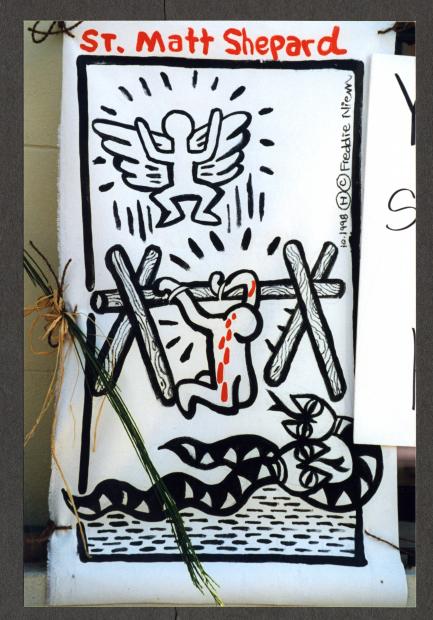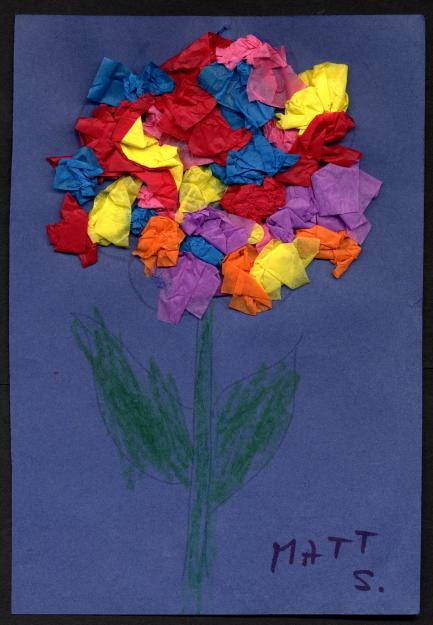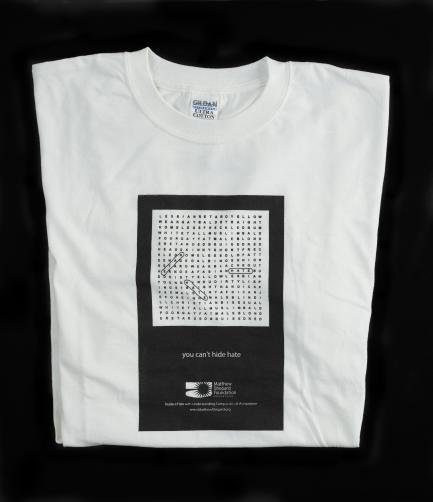Smithsonian Receives Matthew Shepard Collection
The Smithsonian’s National Museum of American History will receive a donation of papers and personal objects from the parents of Matthew Shepard, a young, gay college student who died of severe injuries following a vicious attack in October 1998 when he was a student at the University of Wyoming, Laramie.
Judy and Dennis Shepard will donate personal papers, photographs and notebooks representing the everyday life of their son as a student from elementary school through college, as a participant in theater productions and as an international traveler. The collection also will include condolence cards and correspondence the Shepards received following his death. In addition to the archival materials, a number of objects will serve as a poignant reminder of Shepard’s life as an average American boy: a child-sized Superman cape, sandals, a purple ribbon award he received at school and a wedding ring he purchased in anticipation of one day meeting his soulmate.
“Twenty years is a long time in human years but only a blink in history. Yet it seems like only a moment ago that the country was shocked by the brutal killing of Matt Shepard,” said Katherine Ott, curator at the museum. “The materials donated by his parents, Judy and Dennis, will allow a deeper understanding not only of that time and how people responded and grieved but also the historical vulnerability of LGBTQ people.”
“For 20 years, we have tried to share the meaning of our son’s life, as well as his dreams for a kinder, more accepting and loving world,” said Judy Shepard, speaking for the Shepard family. “While we always have our family memories, it is deeply comforting to know the Smithsonian will preserve his story and meaning for future generations. We cannot think of a better way to honor Matt’s life and legacy.”
Matthew Wayne Shepard was born Dec. 1, 1976 in Casper, Wyoming. Shepard spent his childhood and teenage years in Casper and participated in various local theatrical productions. In his junior year of high school, the family moved to Saudi Arabia for his father’s new job with ARAMCO. Shepard returned to the United States after graduating from The American School in Switzerland (TASIS) and lived in North Carolina and Colorado before attending the University of Wyoming during the 1998-1999 school year.
On Oct. 6, 1998, Shepard became the victim of a vicious attack during which he was taken from a bar, tied to a fence, robbed and pistol-whipped. Abandoned in near freezing temperatures, he was discovered 18 hours later by a cyclist. Shepard succumbed to his injuries on Oct. 12.
His killing made headlines around the world and resulted in an outpouring of grief and anger that people channeled into poetry, songs and musical compositions, a major motion picture, The Matthew Shepard Story, and at least two plays, The Laramie Project and The Laramie Project: Ten Years Later. Materials related to these will be included in the collection.
Students from The School of Theater, George Mason University College of Visual and Performing Arts will present a brief selection from The Laramie Project by Moisés Kaufman and Tectonic Theater Project during the donation ceremony.
The Shepards formed the Matthew Shepard Foundation to honor their son’s life and aspirations. One of its efforts resulted in the passing of federal hate crimes legislation, the Matthew Shepard and James Byrd, Jr. Hate Crimes Prevention Act of 2009.
Materials from the National Museum of American History’s LGBTQ collections date back to the 19th century. Objects in the collections include a selection of protest signs from gay civil rights activist Frank Kameny, Billie Jean King’s tennis dress, the first transgender pride flag and HIV-and AIDS-related lab equipment and medications. The archival collections are rich in ephemera, oral histories, photographs, posters and entertainment publicity materials. The museum has mounted a number of LGBTQ history displays over the years, including two marking the 25th and 40th anniversaries of the 1969 Stonewall riots in New York City, and a showcase exhibit on the 30th anniversary of the emergence of the HIV and AIDS epidemic.
Today’s donation will join the museum’s holdings of some 1.8 million objects and three shelf-miles of archival collections. While there are no immediate plans for a display of the Shepard collection, the materials will preserved for future generations. It will be available to researchers, authors and filmmakers, and may be included in future exhibitions.
Through incomparable collections, rigorous research and dynamic public outreach, the National Museum of American History explores the infinite richness and complexity of American history. It helps people understand the past in order to make sense of the present and shape a more humane future. The museum is located on Constitution Avenue N.W., between 12th and 14th Streets, and is open daily from 10 a.m. to 5:30 p.m. (closed Dec. 25). Admission is free. For more information, visit http://americanhistory.si.edu. For Smithsonian information, the public may call (202) 633-1000.
# # #
SI-583-2018






